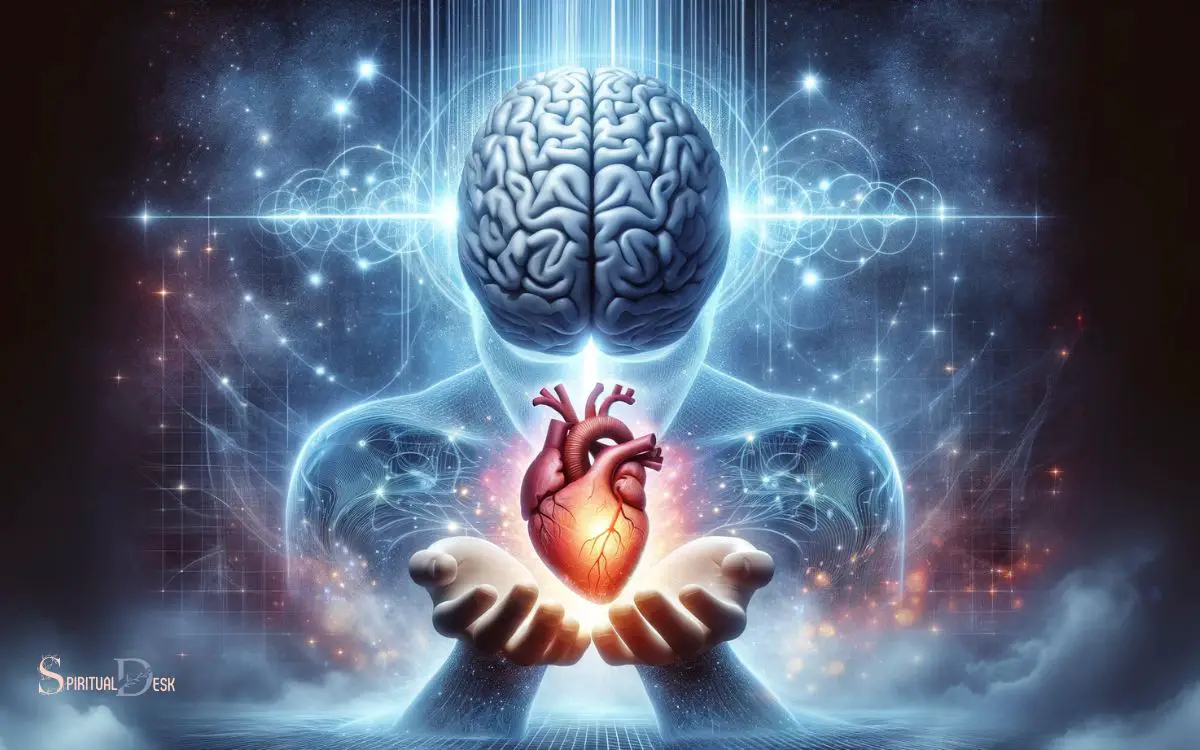Talents Vs Spiritual Gifts: Explanations!
Talents and spiritual gifts are two distinct aspects of personal development that play a significant role in shaping an individual’s life journey. Talents refer to natural abilities or skills that a person may be born with or develop over time through practice and experience.
They can be artistic, intellectual, or physical and are often identified and nurtured from a young age.
On the other hand, spiritual gifts are special abilities given by a higher power or the divine to individuals to fulfill a greater purpose or to serve a community.
These gifts are not learned or earned but are believed to be bestowed to help and guide others in a spiritual or religious context.
To better understand talents and spiritual gifts, consider the following:
Talents:
- Are often observable and measurable
- Can be enhanced through education and practice
- Include abilities such as musical talent, athletic prowess, or analytical thinking
Spiritual Gifts:
- Are typically associated with faith and spirituality
- Serve a purpose beyond personal gain, often for the benefit of others
- Examples include prophecy, healing, or speaking in tongues
For instance, a person may have a talent for playing the piano, which they can improve through lessons and practice.
Conversely, someone might possess the spiritual gift of healing, which they use to help others without formal medical training.
Recognizing the difference between talents and spiritual gifts can lead to a more meaningful and directed life, where natural abilities are honed and divine purposes are embraced, benefiting both the individual and their community.

Key Takeaway
3 Aspects: Talents Vs Spiritual Gifts
| Aspect | Talents | Spiritual Gifts |
|---|---|---|
| Source | Natural abilities | Holy Spirit’s bestowal |
| Purpose | Personal development, success | Edification of spiritual growth |
| Development | Through learning and practice | Manifested through faith and prayer |
Definition of Talents and Spiritual Gifts

The term ‘talents’ refers to natural abilities or aptitudes possessed by an individual, while ‘spiritual gifts’ are special abilities given by the Holy Spirit to believers.
Talents can include skills such as artistic abilities, athletic prowess, or intellectual capabilities. These are often seen as innate and can be developed through practice and training.
On the other hand, spiritual gifts are considered to be supernaturally endowed by the Holy Spirit and are specifically meant for the edification of the church and the spreading of the Gospel. Examples of spiritual gifts include prophecy, healing, speaking in tongues, and discernment.
While talents are often viewed as more universally applicable, spiritual gifts are seen as unique to believers and are intended for the service of others within the Christian community.
Source of Talents and Spiritual Gifts

Both talents and spiritual gifts are believed to originate from distinct sources, with talents being attributed to an individual’s natural abilities and spiritual gifts being ascribed to the Holy Spirit’s bestowal upon believers.
| Aspect | Talents | Spiritual Gifts |
|---|---|---|
| Source | Natural abilities | Holy Spirit’s bestowal |
| Purpose | Personal development, professional | Edification of the church, |
| success, and fulfillment | spiritual growth, and ministry | |
| Development | Can be developed and honed through | Manifested through faith, |
| learning and practice | prayer, and yielding to the Spirit |
Understanding the source of talents and spiritual gifts is essential for individuals seeking to harness and develop these abilities for personal growth and contribution to the community.
While talents are inherent and can be honed through effort, spiritual gifts are seen as divine endowments that are manifested through faith and yielded to the Holy Spirit.
Characteristics of Talents

Characteristics of talents encompass innate aptitudes and skills that contribute to an individual’s abilities and potential for personal and professional endeavors.
These traits are defined by specific attributes that shape an individual’s capabilities and performance.
The following are key characteristics of talents:
- Innate Aptitude: Talents often stem from natural inclinations and tendencies.
- Developable: While innate, talents can be further honed and developed through practice and learning.
- Unique to Individuals: Each person’s talents are distinct and contribute to their individuality.
- Contribute to Success: Talents play a crucial role in an individual’s achievements and fulfillment in various aspects of life.
Understanding these characteristics is essential for individuals to identify, nurture, and leverage their talents effectively for personal and professional growth.
Characteristics of Spiritual Gifts

Building upon the discussion of talents, spiritual gifts, though distinct, share similarities in their impact on individuals’ personal and professional lives.
Spiritual gifts are unique abilities given to believers by the Holy Spirit to serve the church and community. These gifts are not earned or developed through personal effort, but are bestowed by divine grace.
The characteristics of spiritual gifts include their purpose of edifying and building up others, rather than self-promotion. They are intended for the greater good and are to be used in accordance with biblical principles.
Additionally, spiritual gifts are diverse and can manifest in various forms such as teaching, leadership, mercy, and discernment, among others.
Understanding and embracing the characteristics of spiritual gifts can lead to a more fulfilling and purposeful life, both personally and professionally.
Development and Utilization of Talents

Utilizing one’s talents consistently requires intentional cultivation and honing to maximize their impact, complementing the characteristics of spiritual gifts.
To develop and utilize talents effectively, individuals can consider the following:
- Self-Reflection: Understanding one’s strengths and areas for improvement is crucial for talent development.
- Continuous Learning: Engaging in activities that foster growth and skill enhancement is essential.
- Seeking Mentorship: Learning from experienced individuals can provide valuable insights and guidance.
- Practical Application: Actively seeking opportunities to apply talents in various settings can lead to refinement and mastery.
Development and Utilization of Spiritual Gifts

How can individuals effectively identify and harness their spiritual gifts to align with their talents for maximum impact and fulfillment?
It is crucial to recognize that spiritual gifts are not acquired through personal effort or training, but are bestowed by a higher power for the benefit of others.
Once identified, these gifts can be developed and utilized in conjunction with one’s talents to make a meaningful impact.
The table below provides a comparison of talents and spiritual gifts, illustrating how they can complement each other when utilized effectively.
| Talents | Spiritual Gifts |
|---|---|
| Natural skills and abilities | Divine endowments for service |
| Developed through practice and learning | Given by the Holy Spirit |
| Used for personal gain or profit | Used for the edification of others |
Understanding the distinction between talents and spiritual gifts is the first step towards aligning them for maximum impact and fulfillment.
Impact of Talents in Everyday Life

The manifestation of natural talents in everyday life can significantly enhance one’s ability to serve and edify others when aligned with spiritual gifts.
When talents are harnessed and utilized in conjunction with spiritual gifts, they can have a profound impact on daily life:
- Increased Effectiveness: Utilizing talents alongside spiritual gifts allows individuals to be more effective in their service to others.
- Enhanced Communication: Talents can improve communication skills, enabling individuals to effectively convey messages of hope, love, and encouragement.
- Greater Empathy: When talents are used in alignment with spiritual gifts, individuals can better empathize with others, understanding their needs and providing meaningful support.
- Community Building: Talents, when employed in harmony with spiritual gifts, can foster a sense of community by bringing people together and creating a supportive environment.
This harmonious blend of talents and spiritual gifts can lead to a more impactful and fulfilling everyday life.
Impact of Spiritual Gifts in Everyday Life

The impact of spiritual gifts in everyday life extends beyond mere theoretical discussion.
Practical applications of these gifts play a significant role in shaping individual interactions and relationships.
Understanding and utilizing spiritual gifts can lead to meaningful and positive changes in daily interactions and personal development.
Practical Daily Applications
When considering the practical daily applications of spiritual gifts in everyday life, it is important to recognize their potential impact on personal and communal well-being.
Spiritual gifts can significantly enhance individual and collective experiences, leading to a more fulfilling and purposeful existence.
Their practical applications include:
- Guidance: Spiritual gifts often provide guidance and direction, helping individuals make important decisions and navigate through life’s challenges.
- Healing: They can be utilized for emotional, mental, and physical healing, bringing comfort and restoration to those in need.
- Empowerment: Spiritual gifts empower individuals to serve others, fostering a sense of unity and compassion within communities.
- Inspiration: They inspire creativity, innovation, and positive change, contributing to the betterment of society as a whole.
Enhancing Personal Interactions
Enhancing personal interactions through the impact of spiritual gifts in everyday life is a pivotal aspect of fostering meaningful connections and mutual growth.
Spiritual gifts, such as encouragement, wisdom, or discernment, play a significant role in shaping how individuals relate to one another.
Understanding and utilizing these gifts can lead to more empathetic and compassionate interactions, ultimately strengthening relationships and communities.
The following table provides a brief overview of some common spiritual gifts and their potential impact on personal interactions:
| Spiritual Gift | Description | Impact on Personal Interactions |
|---|---|---|
| Encouragement | Providing support and motivation | Fosters positive and uplifting conversations |
| Wisdom | Insightful understanding and advice | Enhances decision-making and problem-solving |
| Discernment | Perceiving truth and authenticity | Promotes trust and deeper connections |
| Hospitality | Welcoming and inclusive demeanor | Cultivates warmth and openness |
| Service | Selflessly assisting others | Nurtures a spirit of generosity and cooperation |
Is there a difference between spiritual gifts and talents in relation to spiritual poverty?
Yes, there is a difference between spiritual gifts and talents in relation to spiritual poverty. Spiritual gifts are abilities given by the Holy Spirit to build up the church, while talents are natural abilities. When spiritually poor vs poor, understanding and using spiritual gifts can help alleviate spiritual poverty.
FAQ About Talents Vs Spiritual Gifts
Can Talents and Spiritual Gifts Be Inherited or Passed Down Through Generations?
Inheritance of talents and spiritual gifts is a topic of interest. Various perspectives exist on whether these traits can pass down through generations.
Understanding this phenomenon requires exploration of both scientific and spiritual viewpoints.
How Can One Differentiate Between a Talent and a Spiritual Gift?
Differentiating between a talent and a spiritual gift involves recognizing that talents are natural abilities or skills, while spiritual gifts are abilities empowered by the divine for serving others.
Understanding their source and purpose is key.
Are There Any Specific Rituals or Practices That Can Help in Developing and Utilizing Spiritual Gifts?
Cultivating spiritual gifts often involves disciplined practices like meditation, prayer, and mindfulness.
These rituals can help individuals connect with their inner selves and the divine, opening pathways for the development and utilization of their unique spiritual gifts.
Can Talents and Spiritual Gifts Change or Evolve Over Time?
Yes, talents and spiritual gifts can change or evolve over time as individuals grow, learn, and experience new things.
This evolution may be influenced by personal development, shifts in beliefs, or changes in life circumstances.
What Role Does Faith or Belief Play in the Manifestation of Talents and Spiritual Gifts?
Faith and belief wield significant influence over the manifestation of talents and spiritual gifts.
They provide the foundational framework that allows individuals to tap into their innate abilities and experience the full extent of their potential.
Conclusion
Talents and spiritual gifts are like two different streams flowing into the same river of life. Talents are the natural abilities and skills that we possess. Spiritual gifts, on the other hand, are the divine abilities bestowed upon us by a higher power.
Both talents and spiritual gifts are essential for personal and spiritual growth. When developed and utilized, they can have a profound impact on everyday life. It is like two beautiful rivers merging into one, creating a harmonious and enriching environment.






